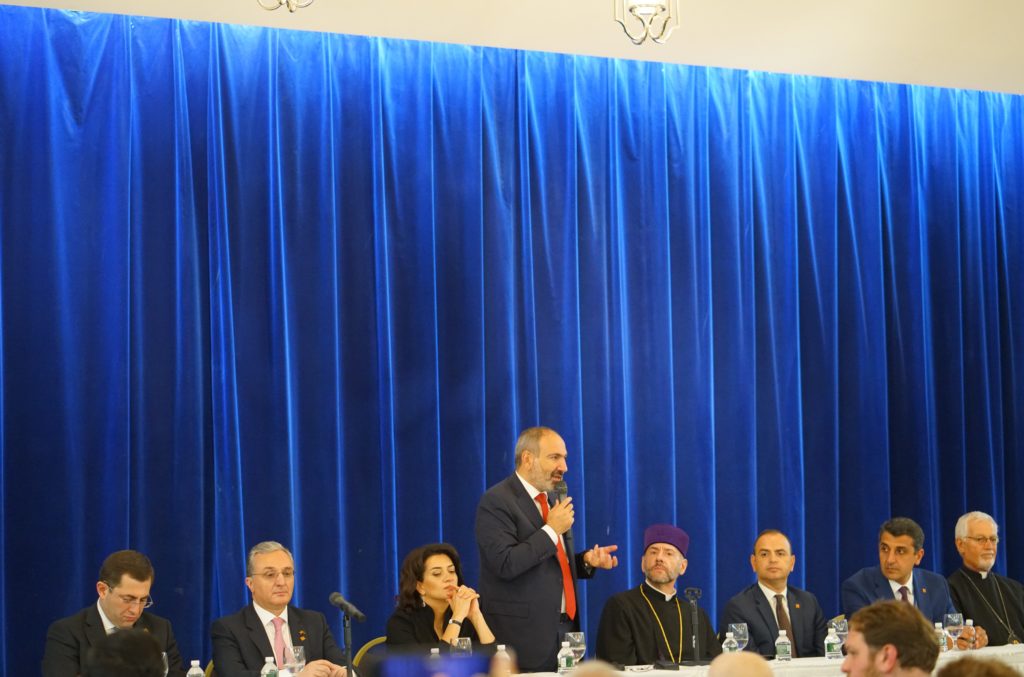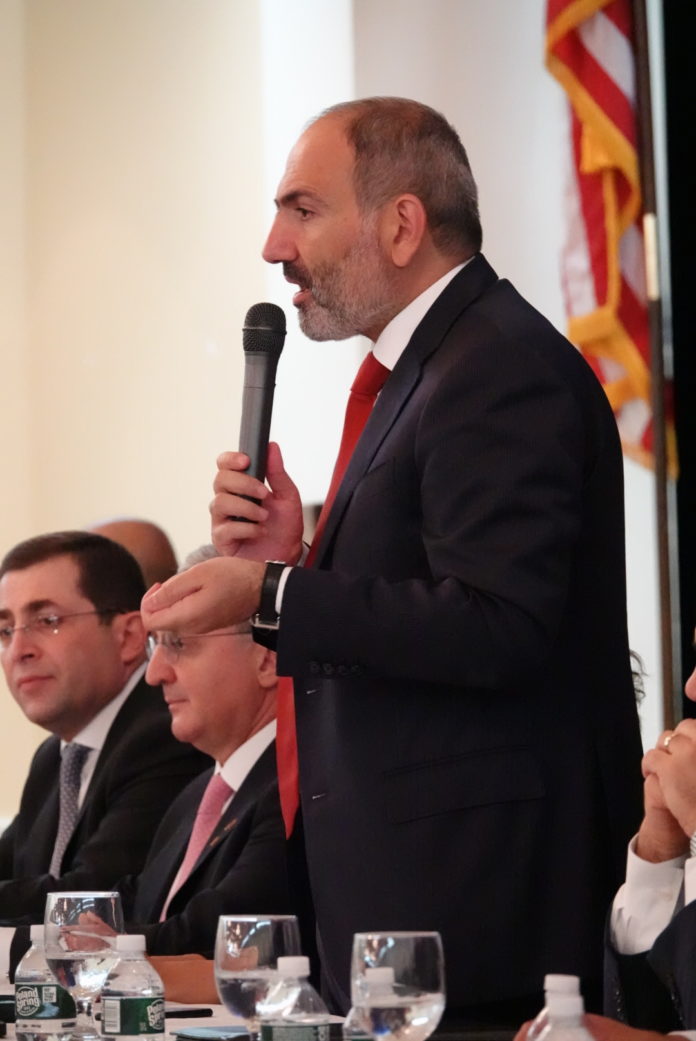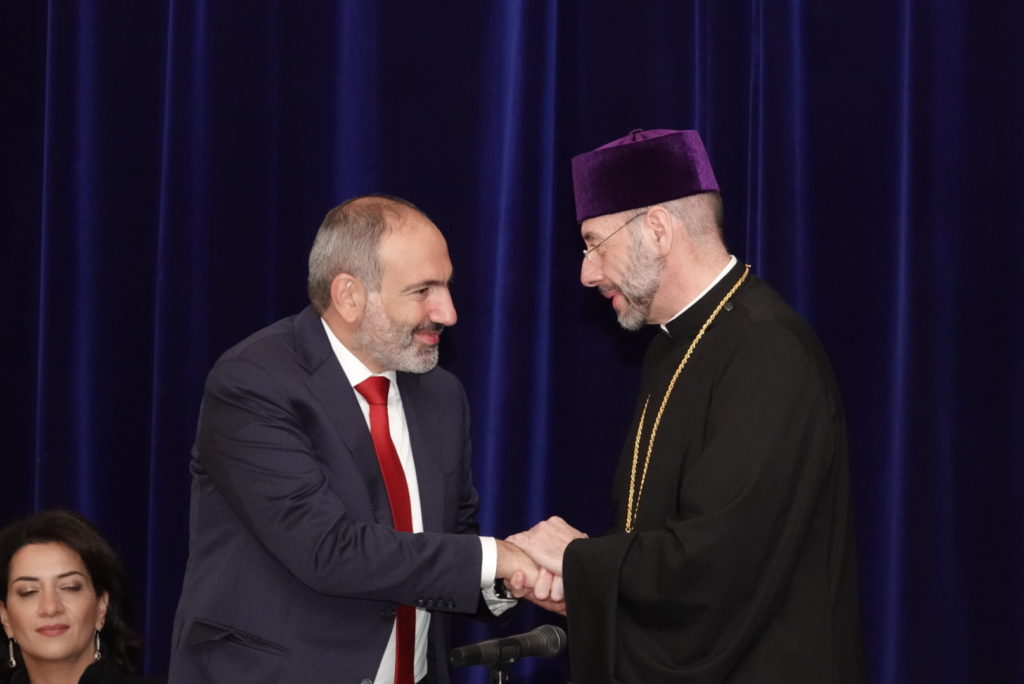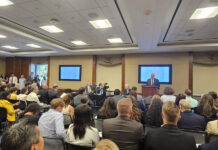NEW YORK — Armenia’s Prime Minister Nikol Pashinyan held a public meeting for the New York Armenian community at the Eastern Diocese of the Armenian Church of America on September 24 while in town for the United Nations General Assembly. Pashinyan was accompanied by, among others, Armenian Foreign Minister Zohrab Mnatsakanyan, the Armenian ambassadors to the United Nations and to the United States, the environmental minister, the consul-general of Armenia in Los Angeles, and Armenia’s high commissioner for the diaspora, along with the prime minister’s wife Anna Hakobyan.
The visitors entered Haik and Alice Kavookjian Auditorium together with Diocesan Primate Bishop Daniel Findikyan, Diocesan Legate and Ecumenical Director Archbishop Vicken Aykazian, Vicar of the cathedral Fr. Mesrop Parsamyan, and other clergy after praying at the cathedral.

Unusually for such events, there was no master of ceremonies. Instead, Findikyan succinctly welcomed the guests in Armenian and in English. Pashinyan immediately afterwards briefly spoke, and then personally took questions from the audience.
Another unusual element for a New York Armenian community event was the lack of any English-language component to the main program. Even those questions asked in English were answered in Armenian, with no English summary. While the majority of the over 700 strong audience appeared to understand Armenian, and may have been natives of Armenia, a certain number of Armenian-Americans, unable to follow the discussion, appeared disgruntled, and at least a few left early.
The majority of the audience was from the New York metropolitan area, but some Armenians had come from other parts of the East Coast, such as Boston and Washington, DC, to see the prime minister. The audience in general appeared enthusiastic and supportive of the prime minister.
In his initial remarks, Pashinyan declared that the biggest challenge after coming to power was to make people realize that the government was serious in its goal of ending corruption, and the new officials did not intend to do as their predecessors did and merely enjoy the fruits of their positions. He stressed, “This is a path on which there will be no compromise.” The result, he said, was that “Armenian must be truly democratic, a truly sovereign, truly social, truly legal state.”









